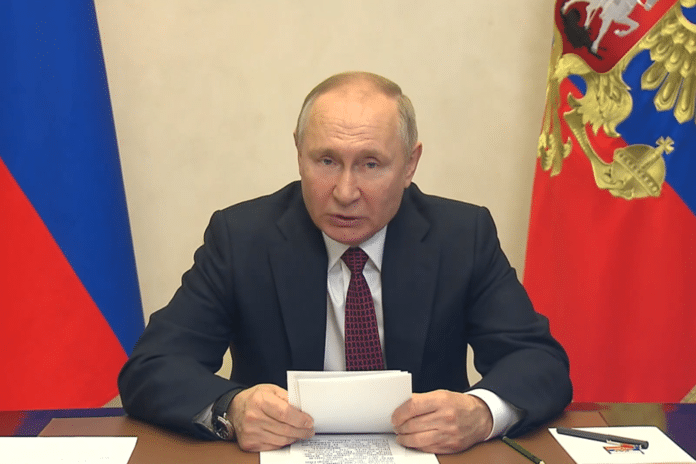Vladimir Putin has massed roughly 100,000 troops on Russia’s border with Ukraine and issued a list of unreasonable demands to the United States and NATO.
Last week, President Joe Biden infamously admitted he expects Putin to send troops over the border.
Time is always on the Russian leader’s side.
Putin’s dictatorship has overlapped five American presidents. He reportedly told then-President George W. Bush in 2008, “Ukraine is not even a country. Part of its territory is in Eastern Europe and the greater part was given to us.”
Putin recently deployed forces to Kazakhstan, ostensibly to quell anti-government protests in the former Soviet Republic, and also has troops across ally Belarus for joint military exercises with its brother nation.
There is concern an escalating situation could transform into a World War III, especially if Putin uses Belarus, which borders two NATO members, as a starting block for attacking Ukraine.
“As reckless as his actions seem to be, there is a method to his arrogance,” a Russia expert told Alpha News. “That logic is Russian, not western, and surely not American. We may deem them irrational — I think both Barack Obama and Condoleezza Rice used that term — but because his mindset reflects Russian standards of behavior, most of his citizens remain on his side.”
Putin’s political career began in 1991, so his mindset is shaped by the Soviet Union’s collapse and his career as a KGB lieutenant colonel. It’s long been common knowledge that Putin considers the USSR’s collapse a catastrophic historical event. He believes he’s since made Russia into a “confident great power with a big future and glorious people.”
Putin, whose father served in the Soviet secret police and ran sabotage operations in Germany during World War II, wants to keep the West guessing. Relentless, he can stay in power at least until 2036 — when he’d be 84 — thanks to a recent constitutional amendment.
Putin wants to reestablish Russian dominance over Eastern Europe by recapturing old Soviet bloc countries.
This would be disastrous for Europe and American national security. President Putin made no offers or concessions in exchange for these demands. https://t.co/DJdWfdE5L4
— Mike Pompeo (@mikepompeo) January 24, 2022
In conversations with his military officials at Camp David last weekend, Biden discussed options for reinforcements in Eastern Europe, particularly within the Baltic States. On Monday, NATO announced it’s putting forces on standby and reinforcing Eastern Europe with ships and fighter jets.
Contra isolationists, our ultimate goal is providing reassurance to allies — lethal aid, including ammunition, antiaircraft and antitank missiles — not a physical troop presence in Ukraine or outright war.
But which Allies? Germany is always key, but can we count on them?
“One expression of Germany’s longstanding ambivalence is its notorious refusal to acknowledge that hard power is a legitimate and necessary instrument in the toolkit of diplomacy,” a Bloomberg writer recently opined.
“Mixed into this faux-pacifism is a bizarre strain of Russophilia, usually accompanied by thinly disguised anti-Americanism. It is also widespread among the center-left Social Democrats, which now run the government under Chancellor Olaf Scholz. In their mythology, the Cold War was won not because the West stared down an ‘evil empire,’ but because German Social Democrats initiated rapprochement with the communist bloc. Their mantra: Talk to the Russians long enough, and everything will be fine.”
Additionally, Germany is the world’s largest purchaser of Russian gas.
Other countries will undoubtedly choose sides according to their geography and dependence on Russia for energy supplies.
But Germany and Russia aligned in any way is historically ominous, as are neo-isolationist politicians, left and right, who minimize the risk of Putin’s incursions.
.@RoKhanna says “Ukraine should declare it is a non-aligned nation” and then there would be peace. Says before 2008 “there wasn’t actually Russian aggression” but then @nato expansion was “unnecessarily provocative.” Discuss. @CNN
— Josh Rogin (@joshrogin) January 22, 2022
A.J. Kaufman
A.J. Kaufman is an Alpha News columnist. His work has appeared in the Baltimore Sun, Florida Sun-Sentinel, Indianapolis Star, Israel National News, Orange County Register, St. Cloud Times, Star-Tribune, and across AIM Media Midwest and the Internet. Kaufman previously worked as a school teacher and military historian.

















